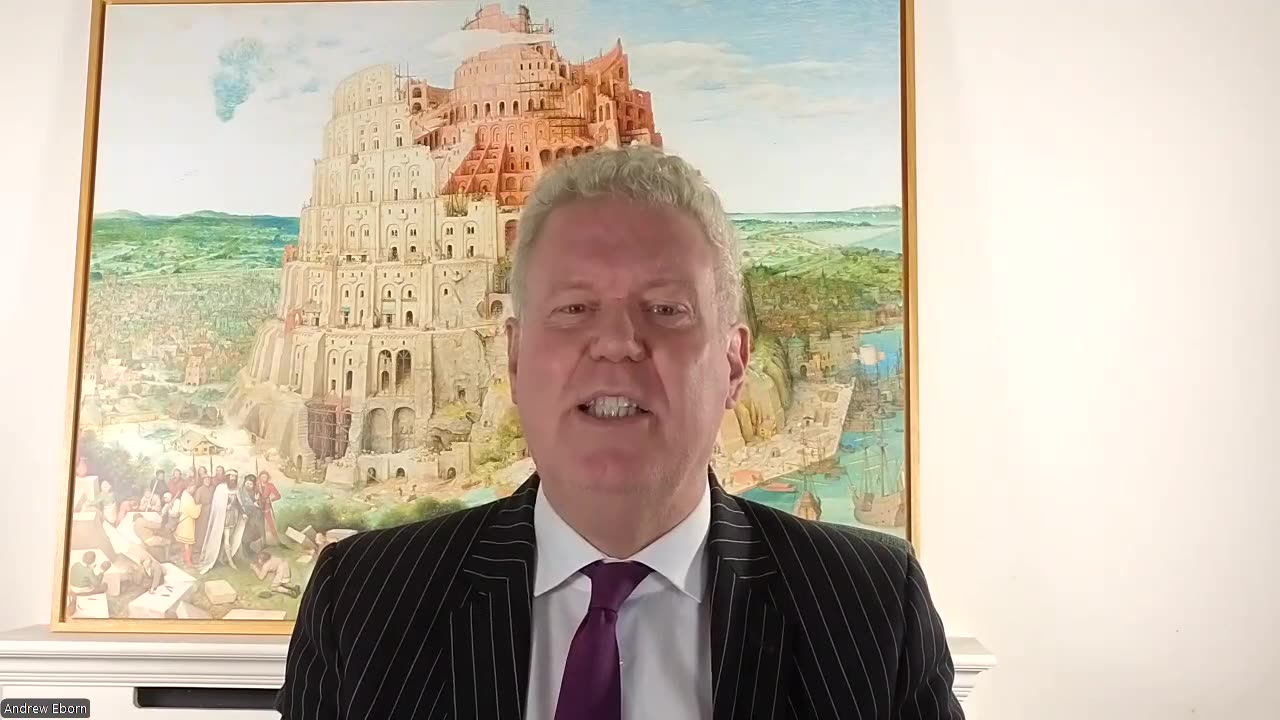Premium Only Content

Axel Rudakubana - TV or Not TV The history of broadcasting criminal sentencing with Andrew Eborn
On the 22nd of July 2022, we witnessed a landmark moment when Judge
Sarah Munro QC made legal history at the Old Bailey, sentencing Ben
Oliver, a 25-year-old, to life imprisonment for the manslaughter of
his grandfather, in what was the first ever filmed sentencing in our
courts. This event heralded a new era of open justice, following the
Crown Court (Recording and Broadcasting) Order 2020 and detailed
guidance from HM Courts & Tribunals Service, updated as recently as
February 2024.
This historic shift was the culmination of years of debate about
transparency in the courtroom. Originally, the 1925 Criminal Justice
Act banned filming in courts due to the disruptive photography seen in
the early 20th century, like that during Dr. Hawley Crippen's trial.
But as technology and public demand for transparency evolved, this
prohibition was reconsidered, leading to the current system where only
specific, high-profile cases can be filmed.
Let's pivot to a recent case of Axel Rudakubana. On the 23rd of
January 2025, Rudakubana was sentenced to life in custody with a
minimum term of 52 years, less time on remand, for committing 16
heinous crimes, including the murder of three young girls, attempted
murder of ten others, and the production of ricin alongside possession
of an Al-Qaeda training manual. This sentencing was broadcast,
allowing the public to witness the judicial process's gravity.
During the sentencing, the judge Mr Justice Goose pointed out "The
prosecution have made it clear that these proceedings were not acts of
terrorism within the meaning of the terrorism legislation, because
there is no evidence that Rudakubana’s purpose was to advance a
political, religious, racial or ideological cause." Mr Jsice Goose
went on to point out in his judgment " Rudakubana's culpability for
this extreme level of violence is equivalent in its seriousness to
terrorist murders, whatever his purpose. Whether his motivation was
for terrorism or not misses the point. What he did on the 29th July
last year has caused such shock and revulsion to the whole nation that
it must be viewed as being at the extreme level of crime. His
culpability, and the harm he caused and intended, were at the
highest."
Following sentencing The Attorney General's Office received a request
to consider Rudakubana's sentence under the Unduly Lenient Sentence
(ULS) scheme, reflecting public and legal scrutiny over whether the
sentence sufficiently matches the crime's severity. Under the ULS
scheme, only one request is needed for a sentence to be reconsidered,
and within 28 days, the Law Officers must decide if the case should go
to the Court of Appeal. The threshold for such a reference is high;
the sentence must be deemed not just lenient but unduly so, perhaps
due to a gross judicial error or an inappropriately lenient sentence
given the crime's severity.
Under the ULS scheme, the Court of Appeal might decide to uphold the
sentence, increase it if found unduly lenient, or choose not to review
it at all. This mechanism reflects the system's attempt to correct
perceived judicial oversights in the most serious cases, including
murder, manslaughter, rape, and robbery.
The broadcasting of Rudakubana's sentencing, alongside the subsequent
ULS request, brings to light several issues. It's about transparency,
yes, but also about the balance between the public's right to know,
the privacy of those involved, and ensuring justice's weight matches
the crime's gravity. The protocol for filming is stringent, with only
authorized media like BBC, ITN, SKY, and PA Media allowed to capture
these moments, under tight controls to protect all involved. The
footage, once captured, is made publicly available online within one
working day on platforms like YouTube, available until the conviction
becomes spent under the Rehabilitation of Offenders Act 1974.
I always say that Trust comes in on foot but leaves on horseback.
The televising of sentencing remarks goes some way to ensuring that
justice isn't just done but is seen to be done, fostering public
understanding and accountability.
-
 LIVE
LIVE
Barry Cunningham
3 hours agoBREAKING NEWS: PRESIDENT TRUMP THIS INSANITY MUST END NOW!
11,952 watching -
 LIVE
LIVE
StevieTLIVE
1 hour agoWednesday Warzone Solo HYPE #1 Mullet on Rumble
71 watching -
 5:58
5:58
Mrgunsngear
3 hours ago $0.38 earnedBreaking: The New Republican Party Chairman Is Anti 2nd Amendment
1.11K3 -
 LIVE
LIVE
Geeks + Gamers
2 hours agoGeeks+Gamers Play- MARIO KART WORLD
243 watching -
![(8/27/2025) | SG Sits Down Again w/ Sam Anthony of [Your]News: Progress Reports on Securing "We The People" Citizen Journalism](https://1a-1791.com/video/fww1/d1/s8/6/G/L/3/c/GL3cz.0kob.1.jpg) 29:34
29:34
QNewsPatriot
3 hours ago(8/27/2025) | SG Sits Down Again w/ Sam Anthony of [Your]News: Progress Reports on Securing "We The People" Citizen Journalism
3.08K1 -
 25:12
25:12
Jasmin Laine
7 hours agoDanielle Smith’s EPIC Mic Drop Fact Check Leaves Crowd FROZEN—Poilievre FINISHES the Job
3.68K16 -
 LIVE
LIVE
ZWOGs
11 hours ago🔴LIVE IN 1440p! - SoT w/ Pudge & SBL, Ranch Sim w/ Maam & MadHouse, Warzone & More - Come Hang Out!
49 watching -
 LIVE
LIVE
This is the Ray Gaming
49 minutes agoI'm Coming Home Coming Home Tell The World... | Rumble Premium Creator
41 watching -
 LIVE
LIVE
GrimmHollywood
10 hours ago🔴LIVE • GRIMM HOLLYWOOD • GEARS OF WAR RELOADED CUSTOMS • BRRRAP PACK •
53 watching -
 1:13:28
1:13:28
Glenn Greenwald
4 hours agoGlenn Takes Your Questions on the Minneapolis School Shooting, MTG & Thomas Massie VS AIPAC, and More | SYSTEM UPDATE #506
99.4K46